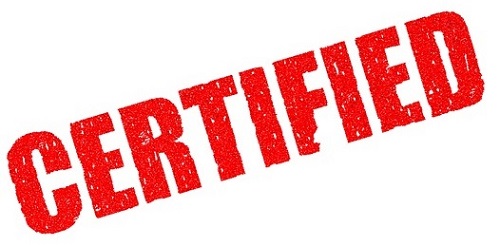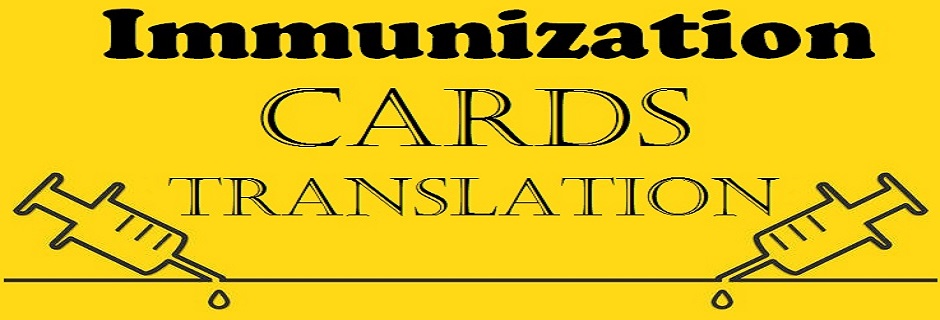PR Application Translation Singapore

SPM Certificate Translation
July 16, 2018
Transcription Services Agency Singapore
July 16, 2018As a professional translation agency in Singapore offering PR Application Translation Services in Singapore, we noted that The Immigration & Checkpoints Authority (ICA) is switching to an electronic system for permanent residency applications from Dec 18 this year.
In a news release on Thursday (Nov 2), ICA said the new electronic Permanent Residence (e-PR) system will allow applicants to key in the required information into an online form on its website.
Supporting documents can also be scanned and submitted electronically.
ICA will also revise the fee structure for Permanent Residency applications. Applicants presently do not pay a processing fee but have to pay $100 for an entry permit if their application is successful.
This will be changed to a $100 processing fee that is charged at the point of submission of an application, with successful applicants paying $20 for the entry permit.
The new fees will take effect from Dec 18.
No more e-appointment slots will be released from that date, with all PR applications accepted only through the new system. Please engage PR Application Translation services if required to ensure you meet all the application requirements.
Those who have already secured appointment slots are not affected and can continue to submit their hardcopy applications during their ICA appointments. They will also not be affected by the new fee structure.
For more information on the e-PR system and processing fee, the public can refer to the FAQ on ICA’s website.
We understand that the typical processing time for an application is 3 months. Applicants will be informed of the outcome by mail. The applicant should notify ICA if there are any changes in his/her address.
Another typical question from the applicant is Do I need to translate my birth certificate for PR application in Singapore?
Yearly, we see people migrating to different countries for one reason or the other which we would analyze. However, the settling process does not occur out of the blue.
For you to get a permit to reside in any country, you need to apply to the appropriate authorities.
If you are a German applying for permanent residency in Japan, it will not make sense for you to write the application in your dialect. Instead, it would help if you wrote it in Japanese because it would be addressed to the Japanese authorities.
Understandably, you are not from that country, so you do not know how to write or communicate in that language. This is where the permanent residency application translation plays out.
The right thing to do during an application process is to ensure that your application is in the dominant language of the country. If this is in misplace, there will be no misinterpretation on your document, and it will fast-track the application process.
Not knowing the language is not an excuse as it is expected that you should be able to communicate in the language of any country you wish to be a resident. You might not be fluent, but you should know some things.
If your permanent residency application is not translated, it will be trashed, and you will not get the residency permit.
Some people apply for permanent residency in a country because they need a change in the environment. It could be that their present country of residence is not conducive, or there is something they need which the country lacks. Thus, there is the urge to relocate to a place that is an enabling environment for whatever they desire.
Sometimes, it is an individual in the family who wishes to relocate. Other times, it will be the whole family.
It will be devastating to get the hopes of family members high and default in the application process. The goal is not to compose or write a permanent residence application, but it should be in an understandable language.
The person who is reading your application should be able to read your application without any hitches or consulting translation platforms.
These authorities will not even bother to go the extra mile because they feel they are doing you a favor, so you should be the person to put in the effort.
Carrying out research could also make a person apply for permanent residency in a country. Many people are poised at making an impact on society, and they will need data for this to be possible.
The first thing they will do is to make findings on the country that will make it possible for them to collate data. After these findings, they will visit the country to ensure that it has what they seek. Once all these are in place, it will be better for them to relocate to that country and work from there than going through the stress of shuffling through countries.
However, if they cannot get a permanent residency, the research will be a flop.
Admittedly, there are usually other documents that are requested when applying for permanent residency. However, all countries also require an individual to write a permanent residency application.
While writing your application, ensure that you go the extra mile and translate it into the local language. Permanent residency application translation is a vital key to securing your permit.
Work can also make an individual want to apply for permanent residency in any country. Many people wish to work with international organizations, and it will be a dream come through if they get the offer.
However, not all companies are flexible or have provisions for remote working. Thus, you will need to apply to become a permanent resident of that country. But, that will not be possible if the issuing authority does not understand the words written in your permanent resident application.
It will be a negligent mistake if you lose out on such an offer because you were lazy or stubborn to have your PR Application Translation done.
It is right for you to remember that permanent residency applications will not break your bank account, so there is no need to have cold feet to carry out the process.
When you weigh what is at stake with translating the application, you will realize that you are doing yourself good by doing a PR Application Translation.
Again, we would love to let you know that the reason why people decide to relocate to another country differs, and you will notice that it is somehow linked to their personalities.
For a person who is concerned about giving back to society and carrying out humanitarian services, you can see them applying for permanent residency in a new country.
Some of you may be wondering why they are doing this, and why it cannot be done in their home countries. However, have you ever sat to wonder how some countries are more developed than others?
It makes sense for a person in a developed country who desires to carry out humanitarian services to decide to apply for permanent residency in an underdeveloped nation.
This way, he or she has the right audience that suits their desires. However, all goals will be quenched if the permanent residency is not issued, and it will be more devastating if it is because you did not translate your permanent residence application. It is better to be over-prepared than to be underprepared.
Schooling is also amongst the reasons why people decide to apply for permanent residency in another country. At first, they will get a schooling permit. However, once they start liking the country or discover that they are many opportunities in that country, the next step is to apply for permanent residency.
For anybody in such a situation, we know that they have set ambitions which will be impossible if they do not get the residency permit. If you are one of such persons or know anyone under this category, the best advice is for you to do PR Application Translation, before attaching it to other documents and submitting.
It does not cost much to translate your permanent residency application, and you should never view it as a burden.
Play your part efficiently n achieving your goals.
Ref.: http://www.straitstimes.com/singapore/ica-to-roll-out-electronic-system-for-permanent-residency-applications-from-dec-18




